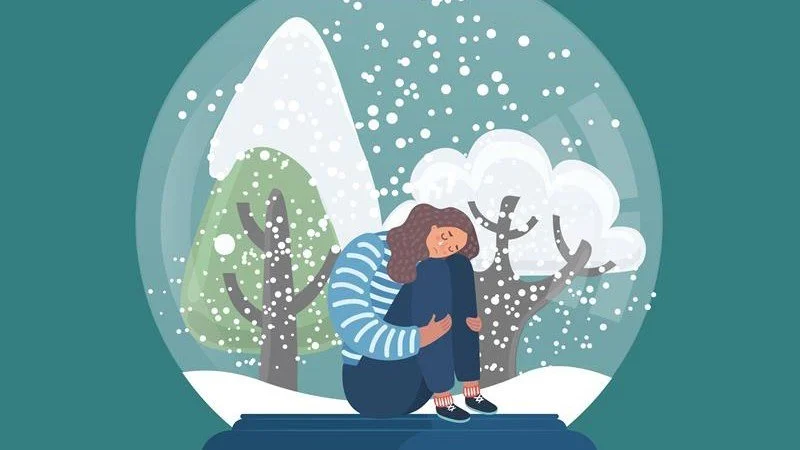Special Edition Fall 2022: Decision Fatigue in the 21st Century
Making choices in our rapidly changing world is more exhausting than ever
By Morgan Shelley
Life is full of choices.
If we can, we determine whether or not we will rise from bed each day. (If you are chronically ill, neurodivergent or live with unique health circumstances, your body sometimes makes this decision for you.) We choose to change out of our pajamas before we go to class—or not—and decide what we will eat for lunch. We do our homework, go to meetings, clean our living spaces and try not to fall into the void of burnout.
But what if we fall in? What if we stop finding joy in the things that we love? What if making decisions becomes so exhausting that we struggle and suffer to accomplish the things we want or need to do? What if we need to take a break and that is not an option?
Into the thick of it
Decision fatigue is more than procrastination or buying takeout again because you lack the energy to cook (which sometimes happens, honestly). Coined by American social psychologist Roy F. Baumeister, decision fatigue is what happens when we get overstressed and the strain of everyday decision-making becomes too much for us to endure. So what do we do? We run forward without thinking, or we run away (also known as impulsive behavior and avoidant behavior). Decision fatigue in healthcare workers has been commonly researched, but I discovered a need for more research regarding college students.
According to Healthline, common symptoms include irritability, migraines, digestive issues, anxious or depressed mood, etc. Ana Pereira ‘24 (English and Communications Studies, she/her) had not heard of decision fatigue before our interview. When prompted about how she deals with decision fatigue, Ana responded, “Sometimes I immerse myself in work or school work to forget about it.” Pereira also shared that she experiences all common decision fatigue symptoms, including disrupted sleep patterns.
A pie chart depicting decision fatigue rates in 10 St. Kate’s students. It reads, “Healthline defines decision fatigue as ‘the emotional and mental strain resulting from a burden of choices.’ Common symptoms include ‘irritability, increased anxiety, depression, and physical effects, such as tension headaches and digestive issues.’ Have you experienced decision fatigue before?” 90% of the pie chart is blue, which is yes, and 10% of the pie chart is red, which is no. Credit: The Wheel
Nine out of 10 St. Kate’s students I interviewed confirmed that they have experienced decision fatigue before and five out of 10 said their experiences lasted for five months or more. 80% said they dealt with increased anxiety, 70% reported irritability and 60% reported depression and irregular sleep. Digestive issues and migraines were the least commonly reported symptoms, landing at 20% and 30%, respectively. And 60% of students said they have a varied sleep schedule. (According to the CDC, adults between the ages of 18 and 60 need seven or more hours of sleep each night. How many zzz’s are you catching, wildcat?)
The data I collected is only a snapshot of the experiences St. Kate’s students have with decision fatigue.
Fern Schiffer ‘25 (English, any pronouns) said they deal with decision fatigue “the same way [they] deal with all fatigue: rest.” Zoe McKillip ‘26 (English, they/them) shared that they “try to make a list of everything and sort things out so [they] have somewhere to start.” Lauren Trowbridge ‘24 (ASL Interpreting and English, she/they) faces decision fatigue by taking things slow. “I’ve found that having other people make mundane decisions helps a lot—like having my roommate decide what I’m eating for dinner.”
If you’re at the end of your energy thread, notice that you’re struggling to get through the day and are dealing with some of the symptoms listed above, you might be experiencing decision fatigue. Healthline recommends making lists, prioritizing your needs, celebrating the little things and reaching out for assistance when needed. The worst thing you can do to yourself when things get cloudy is just keep swimming. We aren’t fish (or machines) and our bodies and minds need rest to recover, recharge and repair.
A frustrated creature. Credit: Pixabay
You aren’t the problem
At the end of my interviews, I always ask the person I’m chatting with if there is anything they would like to share with me. Joey Foerner (first-year Master of Social Work, he/they) had a lot to say. “I think part of this stems from how social systems—like education—emphasize independence and freedom while also dysregulating students, forcing them to be flexible to fit within the school’s structure.” Foerner continued with an example of how St. Kate’s requires some students to have meal plans “yet often have no idea what food they will have any given day, have limited products and hours students can eat and often are inconsistent when it comes to informing students of what a meal costs, what is in the food, etc.”
The most common responses I witness when someone feels overwhelmed—especially in mainstream media—often focus on boundaries. There are magazine articles, YouTube videos, podcast episodes and more that focus on creating and maintaining healthy, realistic boundaries. These are meaningful conversations that need to take place.
However, what is often missing from these conversations is the acknowledgment that boundaries are not an option for everyone and that we exist in a world with fractured systems and toxic expectations. Breaking down because you can’t endure being continuously overworked and overstressed shouldn’t be a regular experience for anyone. Using sick hours or missing out on pay because there is no system in place at St. Kate’s that offers employees health days should not be someone’s only option for rest. And student accommodations aren’t perfect, either.
Slowing down
The world is a mess, we aren’t machines and taking care of ourselves looks different for everyone. So where do we go from here?
The Counseling Center, Access and Success and Student Accessibility and Accommodations have amazing resources for wildcats and are always great places to begin if you need some on-campus support. Connecting with students via NFSOs or other fun gatherings can help relax your lovely mind. And when in doubt, nap it out! Some of my favorite rest activities include spending time with people I love, playing video games, crocheting and if I really need to get some work done but I don’t want to do it alone: body doubling with a buddy.
If we cannot take a break, we can at least take a moment to pause and call someone we love, make a snack, listen to Plastic Love by Mariya Takeuchi or do whatever else will help us remember that things will change and we will not be stuck in the dark forever.
Decision fatigue in the 21st century can be a nightmare. Reminding each other that we are not alone and being compassionate with ourselves can be the difference between finding or losing hope. Right now, we need hope (and love) more than ever.








